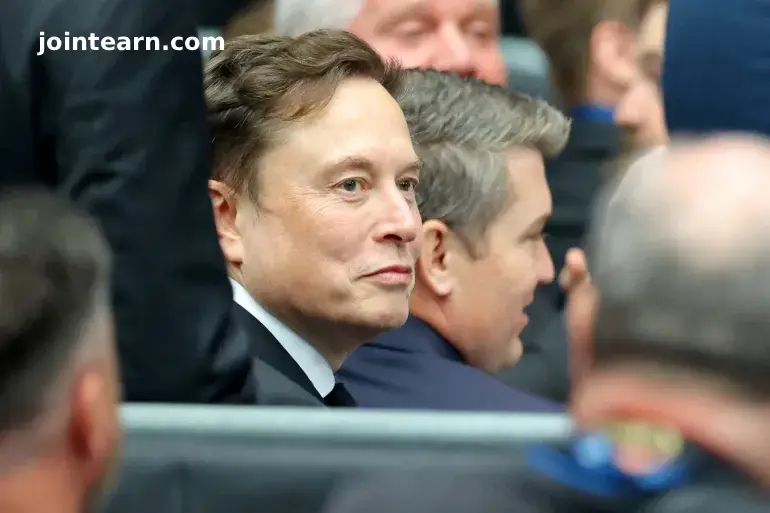
New York, USA — Tesla Board Chair Robyn Denholm has warned that Elon Musk may step down as CEO of Tesla if shareholders reject his proposed $1 trillion pay package, the largest compensation deal in corporate history.
The warning came in a letter sent Monday to Tesla shareholders ahead of the company’s November 6 annual meeting, where investors will vote on the controversial pay plan that could redefine executive compensation in the tech and automotive sectors.
Denholm’s Letter: A Plea to Retain Musk’s Leadership
Denholm described Musk’s leadership as “critical” to Tesla’s continued growth and innovation, arguing that the company risks losing his “time, talent, and vision” if he is not properly incentivized.
“Elon’s unique ability to execute and drive transformational innovation is the cornerstone of Tesla’s success,” Denholm wrote. “Without a plan that recognizes his contributions and motivates him to stay engaged, we risk losing the very leadership that built Tesla into the global powerhouse it is today.”
The letter emphasizes that the proposed package is performance-based, granting Musk 12 tranches of stock options tied to aggressive milestones — including achieving an $8.5 trillion market capitalization, and breakthroughs in autonomous driving and robotics.
Denholm’s appeal also urged shareholders to re-elect three long-serving directors closely aligned with Musk, arguing that stability in the boardroom is crucial as Tesla transitions toward becoming a leader in artificial intelligence (AI) and autonomous vehicle technology.
Proxy Advisers Oppose the Mega Pay Package
The warning follows a backlash from governance experts and proxy advisory firms, who argue that the pay proposal would grant Musk excessive control and wealth at shareholders’ expense.
Two influential proxy firms — Glass Lewis and Institutional Shareholder Services (ISS) — have both recommended that investors vote against the package, citing concerns about board independence, corporate governance, and shareholder value dilution.
Tesla’s board has long faced criticism for being overly loyal to Musk, who also heads SpaceX, X (formerly Twitter), and several AI and robotics ventures. Critics argue that Musk’s multiple commitments could distract from Tesla’s core mission, while supporters claim his cross-industry vision fuels Tesla’s innovation pipeline.
A Controversial Compensation History
This is not the first time Musk’s pay package has faced legal and shareholder scrutiny.
In January 2025, a Delaware court invalidated Musk’s 2018 compensation plan, ruling it was “improperly awarded” and negotiated by a board that was not fully independent. The ruling forced Tesla to revisit how it compensates Musk — a move that has reignited debates about executive accountability and corporate governance in Silicon Valley.
Despite the controversy, Denholm insists the 2025 proposal has been carefully structured to link Musk’s rewards directly to long-term performance and innovation outcomes rather than short-term stock gains.
Tesla’s Strategic Future and Musk’s Role
Under Musk’s leadership, Tesla has evolved from an electric car manufacturer into a multifaceted tech conglomerate exploring AI-powered robotics, energy storage, solar power, and autonomous driving software.
Denholm’s letter argues that losing Musk’s “creative genius” could slow Tesla’s push to become a leader in AI transportation and robotic automation.
“Tesla is not just an automaker; it is a technology company driving the future of mobility and energy,” Denholm said. “That vision exists because of Elon.”
Analysts say Musk’s potential exit could unsettle investors and impact Tesla’s valuation, especially as it faces increasing competition from BYD, Rivian, and legacy automakers accelerating their electric and AI strategies.
Investor Sentiment and Market Reaction
Despite the governance concerns, investors appeared cautiously optimistic. Tesla’s stock was up 3.1% as of 11:00 AM in New York (15:00 GMT), reflecting confidence that the package may pass or that Musk’s leadership will remain intact.
Some market strategists view the rise as a sign that investors expect Musk’s pay approval to provide stability and reaffirm Tesla’s long-term growth trajectory.
However, analysts at Morningstar noted that institutional investors could still swing the outcome, as many rely on proxy firm recommendations when voting on executive compensation.
A High-Stakes Vote for Tesla’s Future
The November 6 vote is seen as a pivotal moment for Tesla — one that will test shareholder confidence in both Musk’s leadership and the board’s governance practices.
If the deal is rejected, Tesla could face significant leadership uncertainty, potential stock volatility, and questions about its innovation roadmap in AI and automation.
If approved, Musk would secure one of the most lucrative compensation packages in corporate history, cementing his influence over Tesla’s future direction.


Leave a Reply